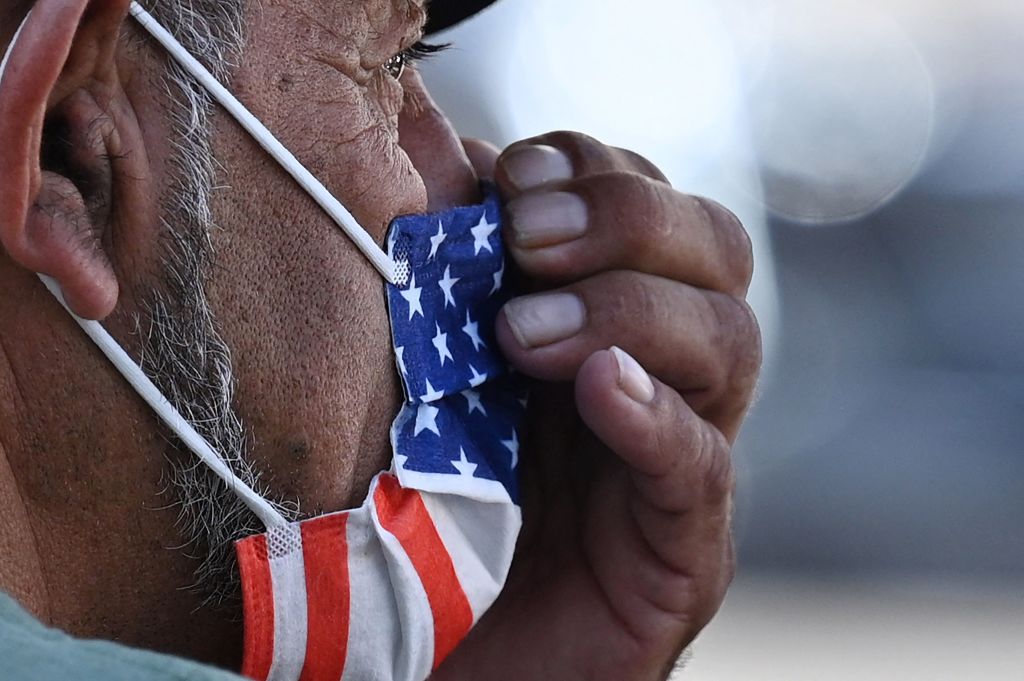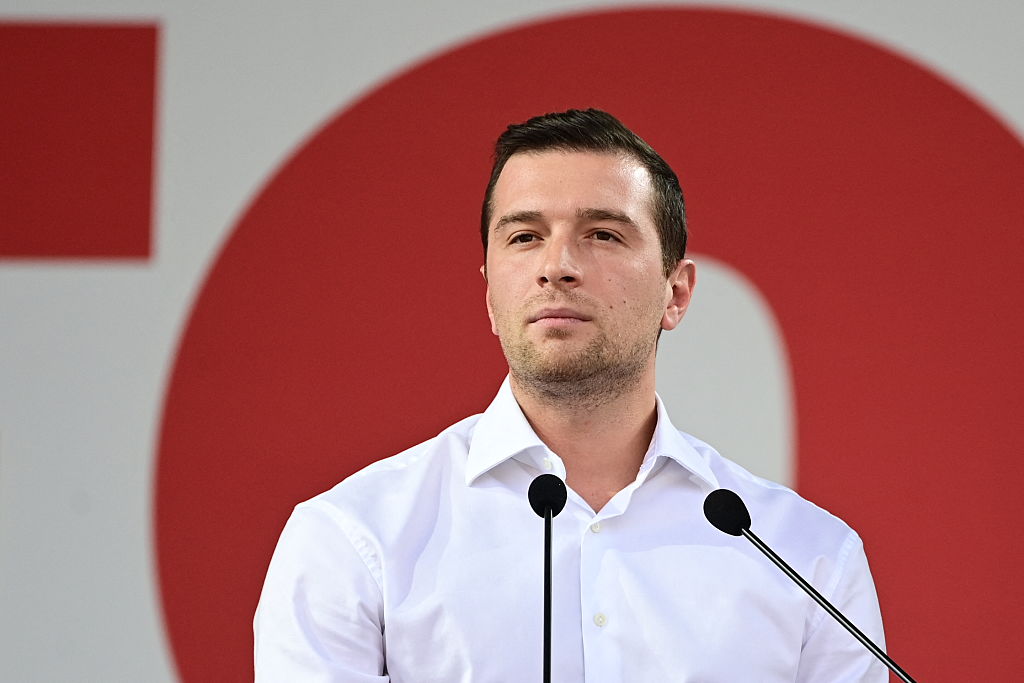On March 24, 2020, Dr. Jay Bhattacharya co-published an article in the Wall Street Journal, “Is The Coronavirus As Deadly As They Say?” He argued that Covid lockdowns and quarantines had no grounding in scientific fact. That was a rare opinion in those isolated days.
Anyone who spoke out against lockdowns, mask mandates, booster shots for toddlers, school closures, business shutdowns and any number of other injustices large and small that stemmed from Covid panic feels vindication today, as Bhattacharya, a sensible, mild-mannered scientist whom former National Institutes of Health head Francis Collins publicly smeared as a “fringe epidemiologist” is about, barring some sort of confirmation calamity, to take Collins’s job.
The nomination of Bhattacharya, a Stanford professor, to head the NIH is a massive political victory for the minority of Americans who’ve spent the last four years opposing the bizarre and draconian public-health policies that stemmed from the Covid-19 pandemic. It’s an epic comeback story. The nominations of Bhattacharya for NIH and Dr. Marty Makary, another Covid contrarian, to head the US Food and Drug Administration, herald an extraordinary change in American public health policy. Yet Bhattacharya and Makary are just the tip of the spear. Behind them is a phalanx of thousands of ordinary citizens — scientists, researchers, parents and just regular folks who smelled a rat — who risked their careers, reputations and personal lives both online and off to fight an extraordinary injustice. They are in a good mood today.
It’s hard to remember that Bhattacharya was once one of them, if somewhat better-connected.
Newman Nahas, an attorney in Dallas, didn’t buy into the Covid policy prescriptions at all. His ex-wife works at the CDC, so he was familiar with US pandemic protocols pre-Covid and never saw anything in those plans about locking down society. On March 18, 2020, he posted a long, carefully reasoned missive on Facebook that proved accurate and prophetic. It read, in part: “The privileged class can work from home. The working class cannot. The affluent will survive the epic economic contraction. The poor will not. The connected will still find ways to stay mentally well. The isolated, already on the brink of mental health collapse, will not.”
There went most of Newman’s online friends. After Bhattacharya published his WSJ piece, Nahas contacted him — they had a Facebook acquaintance in common — and they quickly became, Nahas says, “best friends,” bonding over a mutual love of philosophy and ethics, visiting each other’s families and supporting each other through some tough times.
“Jay was dealing with a lot in April 2020,” Nahas says. “People would cold-call him and say nasty things. It’s hard to believe now, but it was actually considered an act of violence to do a seroprevalence study. There was this patronizing assumption that we had to keep up appearances that the virus was more deadly than it might actually be. It’s an insane way of thinking.”
It looked like things were going to turn around in the summer of 2020, when President Trump, at the urging of Jared Kushner, brought Dr. Scott Atlas, from Stanford’s Hoover Institution, onto his health advisory team to try to correct the wrong turn the country had taken under the pandemic direction of Anthony Fauci, Deborah Birx, Collins and CDC director Robert Redfield. Atlas had adopted a strong skepticism of Covid policy, which led the Stanford facul-ty senate to condemn him, on a Zoom call, for “promoting a view of Covid-19 that contradicts medical science.”
Atlas arranged for Bhattacharya to come to the White House, where he met Martin Kulldorff, another epidemiologist and Covid policy skeptic, at the time a professor at Harvard. But, as Kulldorff puts it, “they got rid of me”; he is now an independent researcher. Though Atlas wasn’t able to push much through the intractable health bureaucracy — other than an increase in Covid testing in nursing homes, where the virus was running most rampant — the August meeting of Bhattacharya, Kulldorff and others with Donald Trump proved to be an important turning point.
“The public health community, Fauci and others, abandoned evidence-based medicine as the principle of public health,” Kulldorff says, “while Jay and me and Marty Makary and others clung to the evidence-based approach as the principles of public health. Of course, that proved to be the correct approach.”
In October 2020, Bhattacharya, Kulldorff and Sunetra Gupta, an epidemiologist at Oxford, issued the Great Barrington Declaration, which called for “focused protection” of vulnerable people and argued for an evidence-based approach to public health as opposed to the slapdash lockdowns that the US, and many other countries, had imposed in a futile effort to stop Covid from spreading. Reading the Great Barrington Declaration now, it’s striking how mild, even anodyne, it seems, but at the time the press and the health establishment, and a scared public, responded to it like Grand Moff Tarkin ordering the Death Star to destroy Alderaan.
As we know, Trump lost the 2020 election and the Biden administration kept the public-health bureaucracy in place. It doubled down on failed policies. The slander increased against Bhattacharya, Kulldorff and other prominent signatories of the Great Barrington Declaration. Twitter censored Bhattacharya, as was shown in one of the early “Twitter Files” exposés. But the Great Barrington Declaration was out in the world for regular people to use.
“It gave everyone a sword and a shield,” Kulldorff says. “It was just the basic principles of public health and they could use us to defend their position. I’m enormously grateful to everyone because they’re the ones who turned things around.”
Kevin Bass was one of those people. A third-year medical student at Texas Tech in Lubbock, he decided in 2022 that he’d had enough of draconian Covid policies. He put together a Twitter thread, which went viral and got the notice of Batya Ungar-Sargon, at the time an editor for Newsweek. She commissioned Bass to do a mild, almost apologetic article which argued for a reassessment of how public health policy is developed and a look at its repercussions. This led to an appearance on Tucker Carlson’s Fox show, which in turn generated a smear campaign that ended with Bass’s removal from medical school and his PhD program. One of his major supporters was Bhattacharya, who provided emotional support and legal help. Bhattacharya knew full well how the world treated Covid-policy contrarians.
“Jay was there the whole time when I was crying on the phone and they were a few months away from dismissing me. He was more there for me than anyone,” Bass says. “You have to understand how intense the backlash was for me. I was a traitor. He called me many times out of nowhere.” Bass lost everything, or so he thought, but later ended up with a job as a researcher at Collateral Global, a health-policy think tank of which Bhattacharya is a founder. Now he’s in a position to make an actual impact in the world.
“I was a minor influencer,” Bass says. “He will find all these accounts that are random weird people with like 500 followers. Will read their stuff and become excited… about nobodies. He doesn’t care about your station, he’s not looking for your help. He’ll engage and learn from anybody from all walks of life.”
Tracy Beth Høeg was a physician epidemiologist in a small group practice and a researcher at UC Davis when the pandemic hit. She describes herself as an NPR-listening political independent. But she’d also spent much of her adult life in Denmark, and her Scandinavian news sources there were showing her a very different reality than what Americans were facing. The Danes opened schools. They weren’t forcing children to wear masks. Life was on track, and relatively normal, as opposed to the dystopian insanity that the US faced. And so she spoke out: “Suddenly all these friends were accusing me of supporting Trump. I was kicked out of physicians’ groups, mom groups, epidemiology groups. Not even my family could see my posts on Facebook.”
She wondered why this was happening. “You’re supposed to speak out as a doctor and be honest. Do the research that matters. But that is not what academic medical centers in the US want. Culturally, I was not prepared for it.”
Soon enough, as was the trend, her university dismissed her, but Høeg found herself authoring papers and studies with other Covid policy skeptics, appearing on Zoom panels with Bhattacharya to debate AFT president Randi Weingarten on reopening schools, suing the state of California for attempting to subvert the doctor-patient relationship by establishing factually incorrect Covid guidelines, testifying in front of Congress three times, and, in 2022, serving on a health advisory committee for Florida governor Ron DeSantis.
With the appointment of Bhattacharya and Makary, the years of effort and strange bedfellows are bearing fruit. People have lost friendships, careers and public identities. Lockdowns and school closures harmed countless millions of people in ways that we’re just starting to quantify. But now, as President-elect Trump fills his administration with the skeptics, the truth of the harms of our Covid policies will begin to surface.
“Both Jay and Marty are very committed to the idea that the NIH and FDA are branches of the government that truly serve the interests of the people,” Høeg says. “Their job should be to empower and assist people with information and resources so they can make healthy decisions. Their core philosophy is to fight the system that is doing harm to the average American.”
Newman Nahas has a more poetic take on the situation, comparing Bhattacharya to Joseph Campbell’s “Hero With A Thousand Faces.” “It really is like a victory,” he says. “There’s this idea in mythology and religion. Adam falls and Jesus reverses the fall. When one person in a community rises, the rest of the community rises with him. There’s this exhilaration. One of us has made it, and so all of us have been vindicated.”
This article was originally published in The Spectator’s January 2025 World edition.


























Leave a Reply